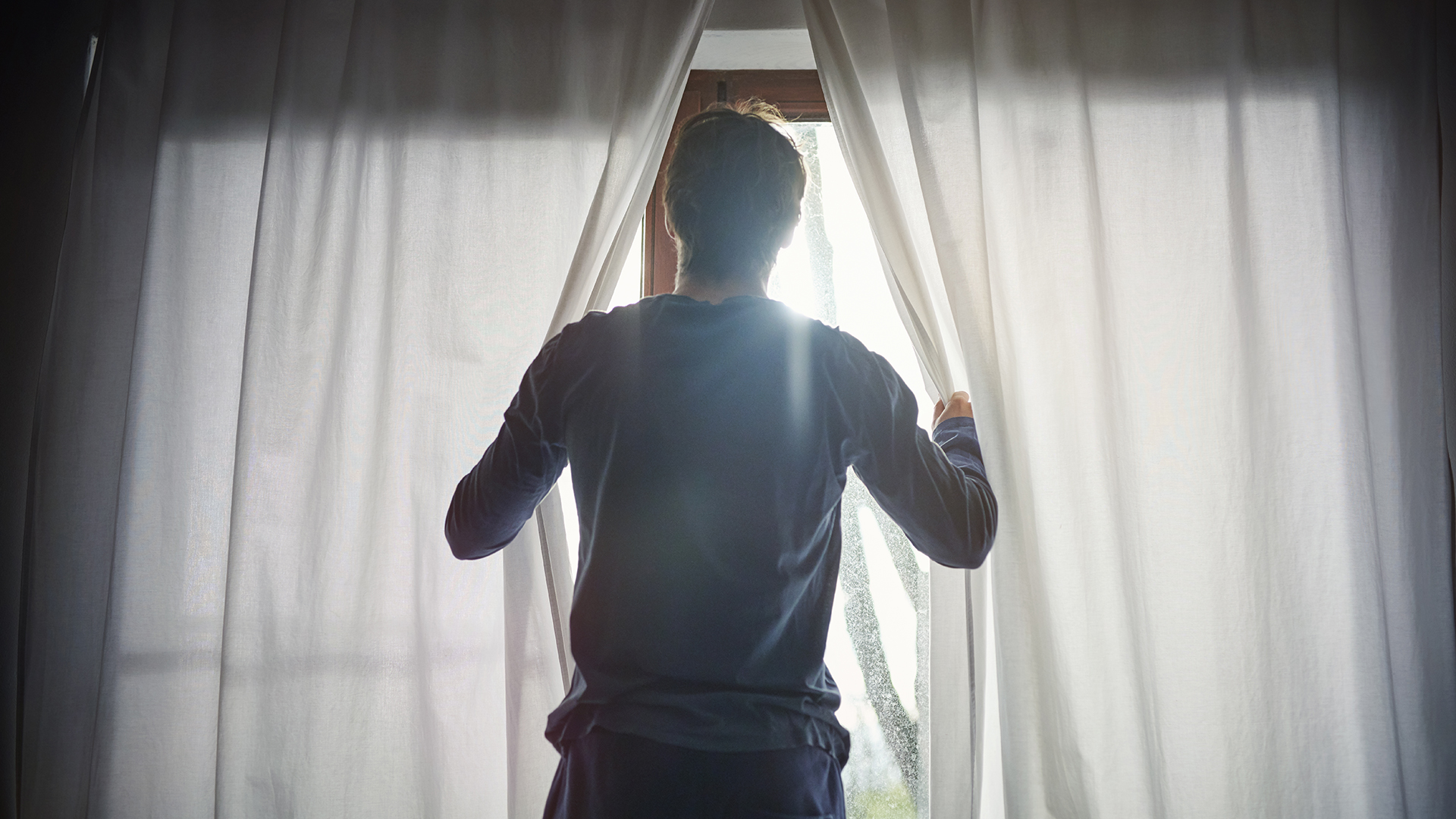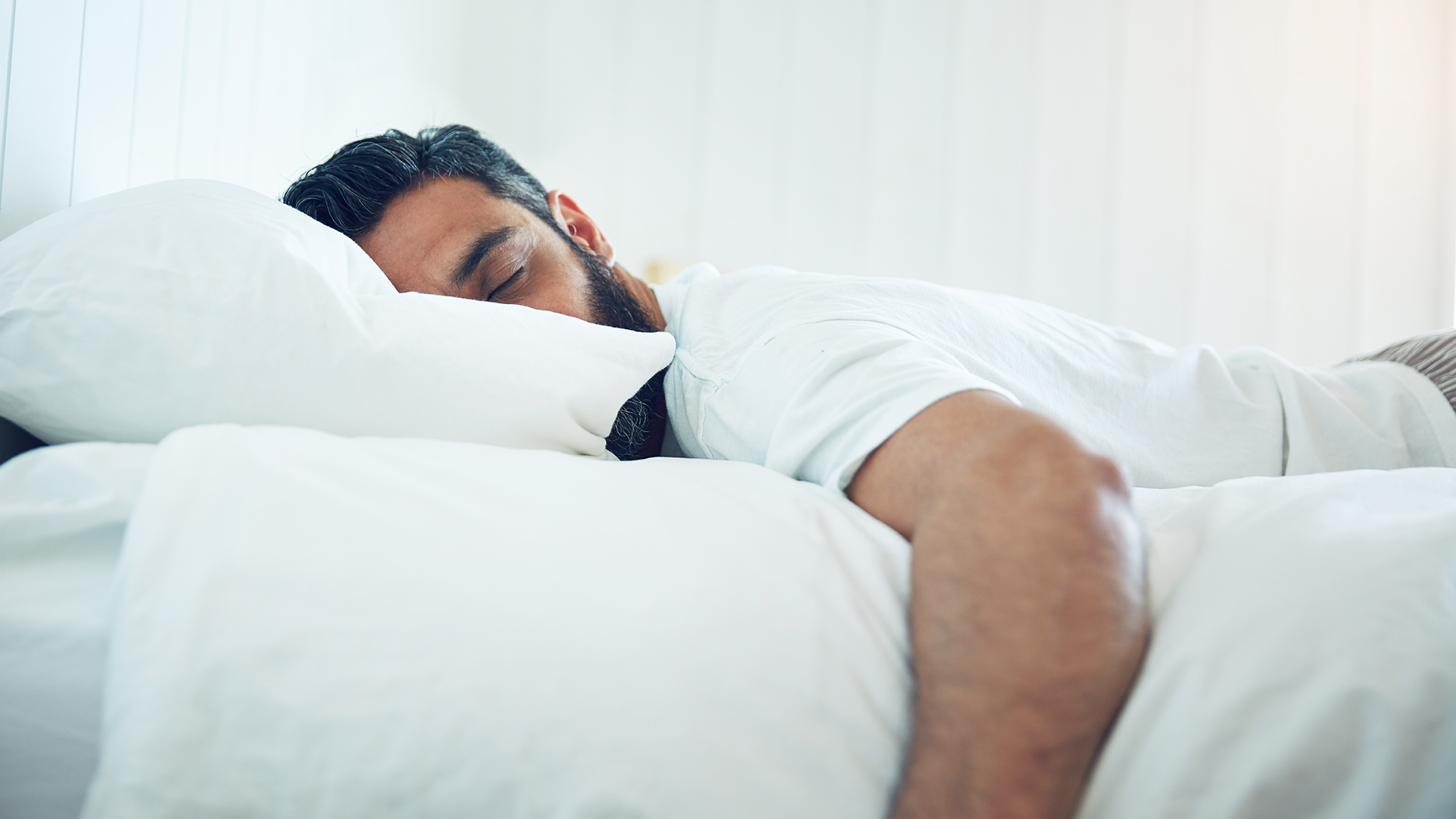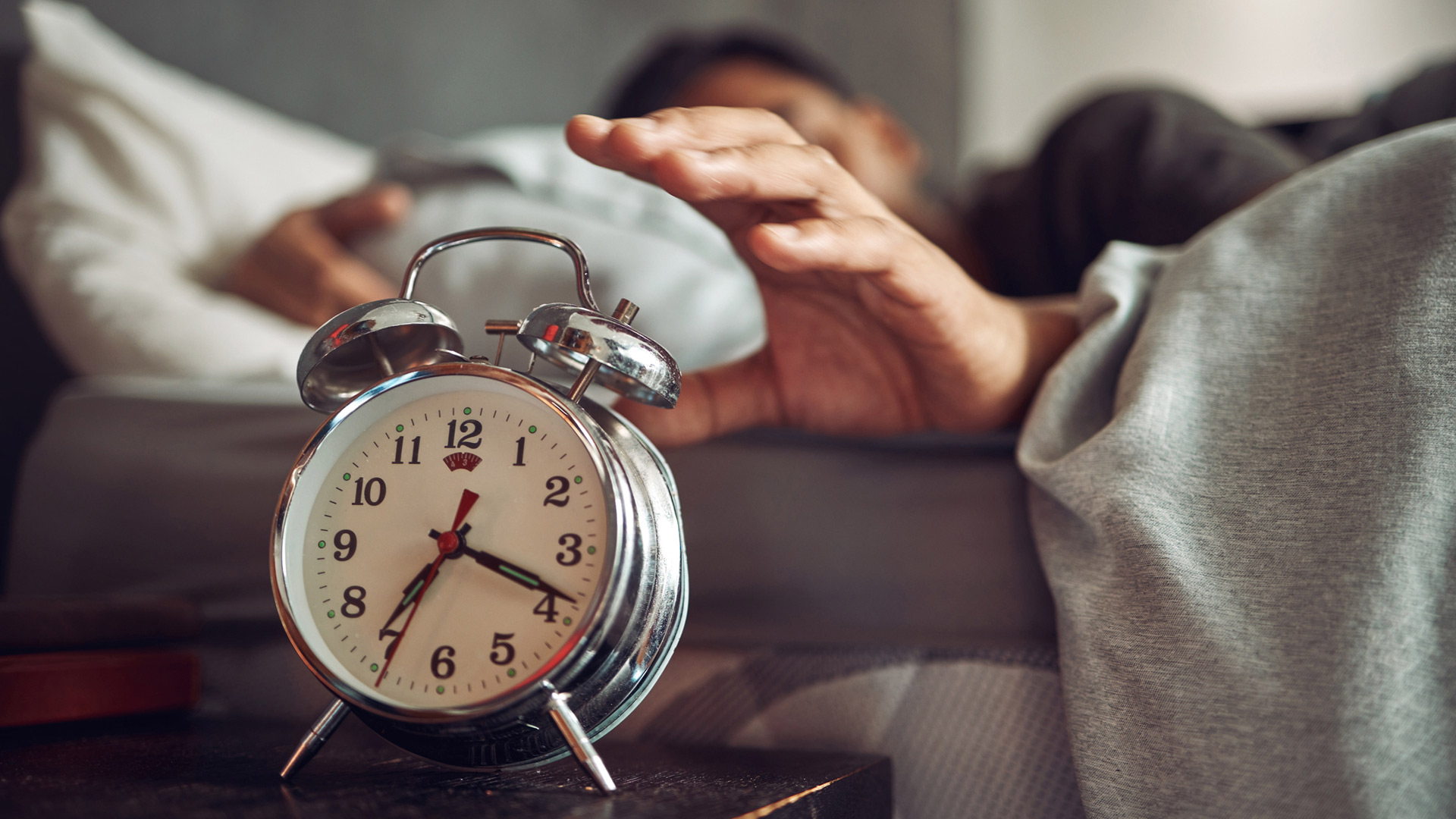4 things to do to prepare for the clock change (plus 2 things to avoid)
Golden rules to get your body ready for Daylight Savings

Don't want to spend the Monday following daylight saving time mourning that hour of sleep you and your best mattress missed out on? We can help make the clock change a little easier. The only catch – you need to get started now.
Daylight saving time starts 10 March in the US and 31 March in Europe, but your preparations should begin at least a few days in advance. As Dr Matt Walker, sleep expert and medical advisory board member for Oura, explains, we need to "ease the transition during the 'spring forward' daylight savings time shift". And he's given us some tips on how to go about it (including the bad sleep habits to avoid).
These small, incremental adjustments to the bedtime routine help our bodies cope with the big change when the clocks go forward. But if that all sounds like a bit too much, don't panic. There's only eight months to go until you get that precious hour back...
4 things to do ahead of daylight savings time
Daylight saving can feel like an abrupt change, but Dr Walker recommends taking the opposite approach by making small, comfortable adjustments to your sleep schedule. Here's what he suggests:
1. Start waking up earlier
Rather than losing one hour in one go, switch up your schedule so you drop 10 to 20 minutes sleep from your morning every day. Starting a few days before daylight saving kicks in, go to bed and wake up 10 minutes earlier than usual. The next day, make it 20 minutes, then 30, and so on.

By the time Sunday comes around and the clock jumps forward, you'll be ready to meet it, having already started sleeping in this new time zone. And because you made the shift gradually, it won't feel like a shock to your system.
2. Get some early morning light
This next tip involves putting the 'daylight' back in 'daylight saving time'. Light helps keep our circadian rhythms steady, so we're alert in the day and drowsy at night. Use this to your advantage by getting as much morning light as possible in the run-up to the time shift.
Sign up for breaking news, reviews, opinion, top tech deals, and more.
And keep it going when the clocks have changed. On Sunday and Monday morning, expose yourself to light soon after waking up, rather than rotting in bed thinking about the sleep you lost.
3. Practice 'sleep banking'
Sleep banking is the process of sleeping more in the nights before an event you know will have you sleeping less. By accumulating extra sleep in advance, that lost hour shouldn't have such a noticeable impact.

Of course, we're not suggesting spending half of Saturday in bed – oversleeping should be avoided. Instead, add an extra 10 to 15 minutes to your sleep in the week prior to the clock change. (In keeping with our number one tip, make sure to add this sleep at the start of the night, rather than the morning.)
4. Keep your bedtime routine consistent
Small changes like the tips above can make losing an hour easier, but avoid any major shakeups to your sleep pattern. Keeping a consistent bedtime routine throughout the year can help ease you over the ups and downs of seasonal changes, and avoid the effects of social jet lag.
If you haven't got a good bedtime routine, the best time to develop one is always right now. The 10-3-2-1-0 method can help you schedule your day for optimum sleep, but if you're not ready for a change quite that big, these 3 practical sleep tips are easy to incorporate into bedtime.
2 things not to do when the clocks change
These habits are the things that seem like good ideas at the time but, ultimately, aren't what your sleep needs.
1. Don't watch the clock
That time change is coming regardless, so you don't need to watch the hour slip away. Clock watching and worrying about losing sleep creates stress, and it's hard to sleep when you're feeling anxious. Take away temptation by keeping your clock (or phone) out of the bedroom.

Rather than thinking about the hour your missing, redirect your brain with some relaxing breathing. The military sleep method uses focused breathing, visualization, and gentle movement to create a sense of calm that can help you drift off.
2. Don't take a nap
Sunday afternoon is already prime nap time, and when you're feeling the effects of a one hour time jump, a quick kip is even more tempting than usual. But unless you want to spend Monday groggy and half asleep, it's best to resist.
Napping in the afternoon can make it harder to fall asleep in the night, which means you're more tired the next day, so you take another nap, then you can't fall asleep... and so it goes.
As appealing as a nap might seem, take a walk in the sunlight instead, or, if the weather's not so good, engage in a bit of spring cleaning. These activities keep your mind and body active, helping you both stay awake during the day and fall asleep at night.

Dr Matt Walker is a renowned sleep scientist and professor of Neuroscience and Psychology at the University of California, Berkeley. He is also the founder and director of the Center for Human Sleep Science at UC Berkeley, where he conducts research on the effects of sleep on human health, well-being, and performance. Dr Walker has authored numerous scientific articles and book chapters on sleep, and is the author of the bestselling book "Why We Sleep: Unlocking the Power of Sleep and Dreams." He is a frequent speaker at scientific conferences, TED Talks, and media outlets, and is widely recognized as a leading authority in the field of sleep science.

Ruth is TechRadar’s Sleep Writer. She’s here to help you find the perfect sleep setup for your budget and personal preferences. As well as keeping a keen eye on everything that’s going on in the world of mattresses, she regularly speaks to experts to help you learn how to improve your sleep habits, whether that’s by debunking sleep myths or explaining the science behind it all. Prior to joining the TechRadar team, she wrote features and product guides for new parents hoping to get a decent night's sleep, as well as writing for a variety of online spaces.